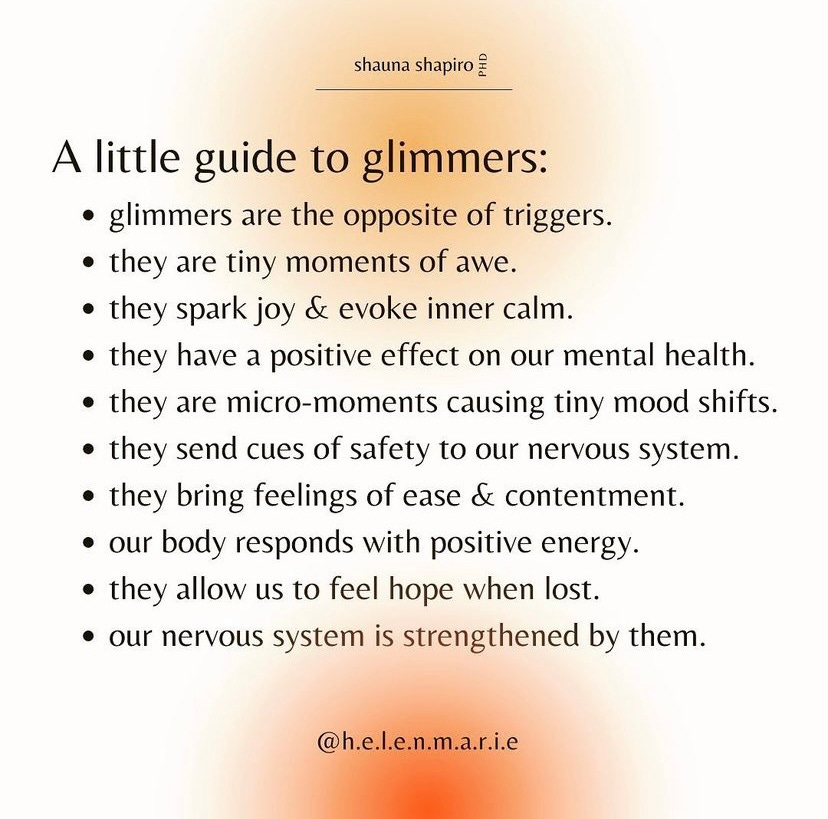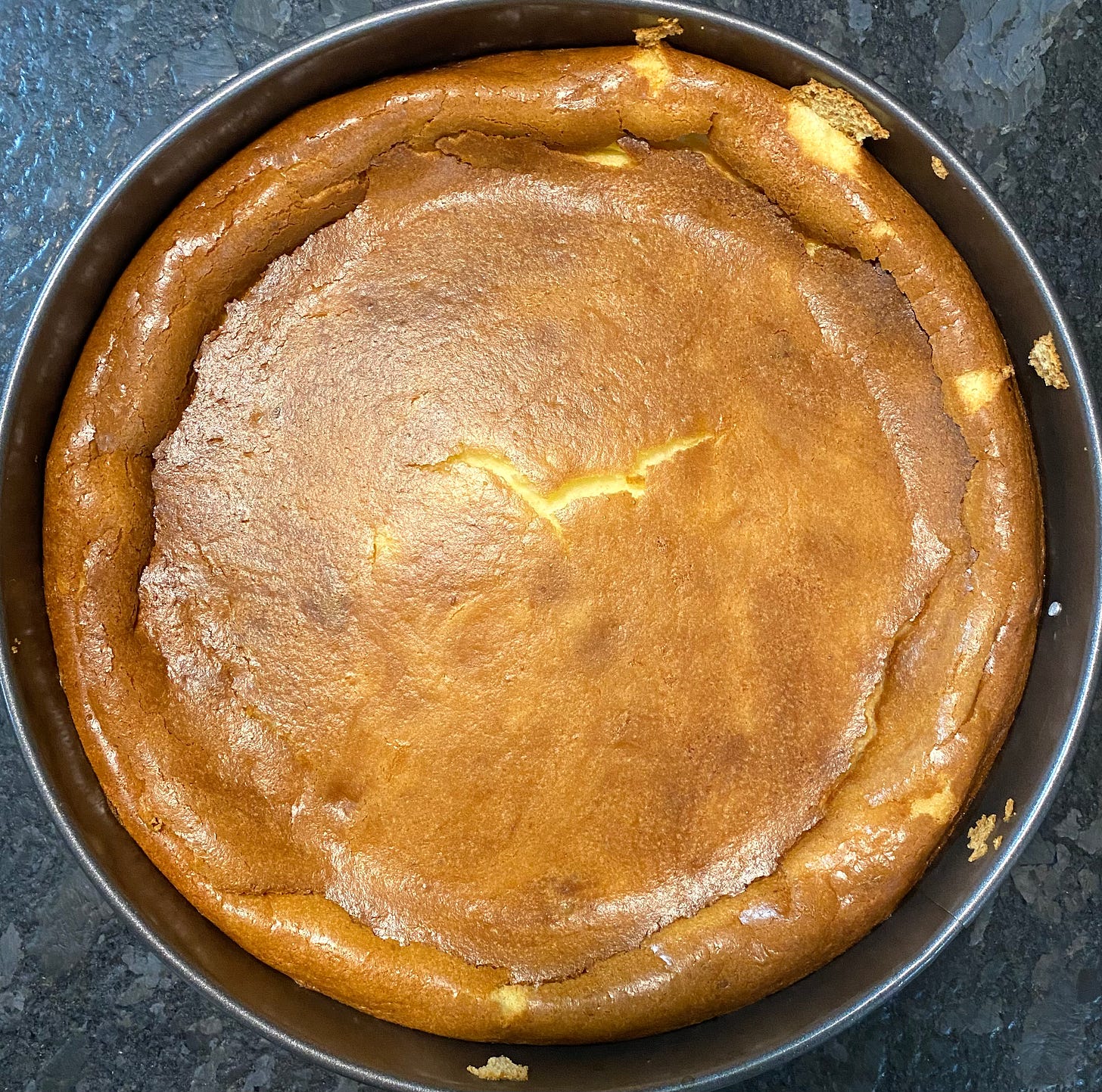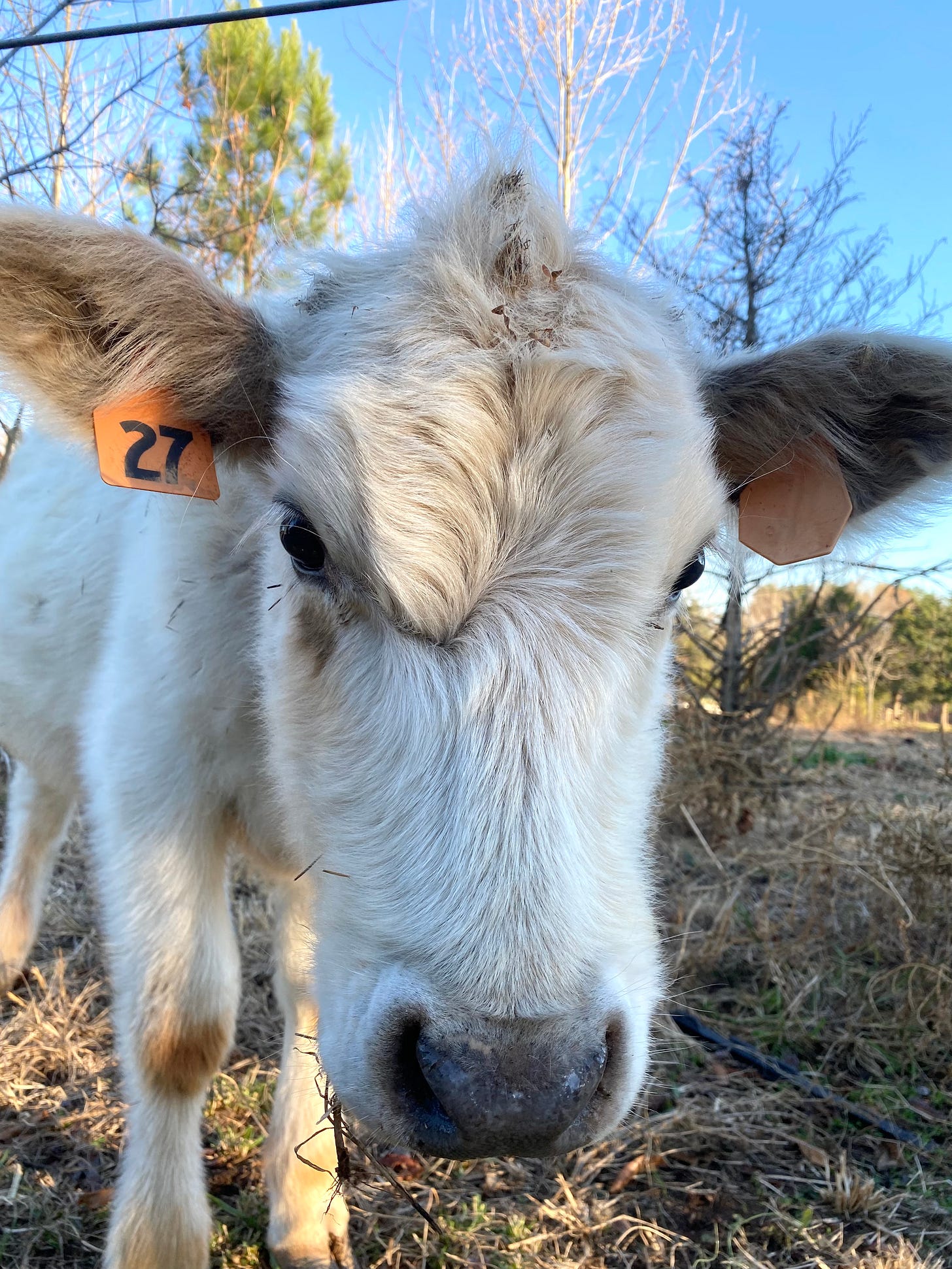Glimmers, a repost
Tomorrow my family of 23 people is coming. That’s 5 children, their spouses, and all 13 grandchildren. This will be the first time we are all together since a few of them were born and we are beyond excited.
In light of that excitement (and because there is a lot of prep work for this kind of days-long gathering), I am sharing this post from one year ago because I think it’s important.
Happiest of Thanksgivings to you and yours. Find the glimmers.
In the last few years, since the advent of Covid I think, the conversation surrounding mental health has come out of hiding and into the public arena. Or maybe it was always there and I just ignored it because I didn’t need that particular discussion. It did not pertain to me, until it did.
When my own mental health took a hit, suddenly I was very interested in it. Here’s what I’m learning though: there are a lot of topics covered in the Bible that we don’t necessarily notice until we think they apply to us. That’s one of the reasons you can read your Bible from cover to cover twenty straight years and get something new out of it every time. It’s because your circumstances are different each year, so you see the same words in a new light, with a new outlook.
Not affected by divorce? You will barely notice those passages. But when it hits close to home, you’ll pay attention. That’s the way it works.
Long before I was a Christian, I was taught to be thankful. My grandparents and aunts and uncles all modeled it for me, as did my parents. We were not spoiled children, but all our needs were met and we had some wonderful experiences as kids that I wouldn’t trade for all the “things” in the world. We had it pretty easy: intact family, nice home, good schools, friends. It was easy to be grateful.
But I think we can all say at times—sometimes for long times—we forget to look around and actually notice all the things there are that we could be thankful for. I could focus on the sea of red dirt, or I could look out over the pasture and thank God for another sunrise.
I could give in to the anxiety I wake up with, or I could stand at my bedroom window, take a few slow, deep breaths, and know that I’m getting a new day.
I could be overwhelmed by everything on my to-do list, or I could keep coming back to the window to see how the sky changes every minute. Errands might feel important, but this is too important to miss.
Here’s the thing: A healthy nervous system is able to activate a stress response to some stimulus, then after the threat is gone, go back to a normal state of rest and calm. That’s the way our brains were made to work. They were designed to first of all keep us alive. When the brain perceives (even wrongly) that there is a threat, it will activate the stress response and stay there until it thinks the threat is over.
But when a trauma has occurred, whether it’s some kind of abuse or a nasty car accident, this normal process is short-circuited so that when a stimulus arises, the nervous system gets stuck in fight, flight, freeze, or fawn. It is unable to get back to a state of rest and it stays in high alert, thinking the threat is still happening, right now.
A traumatized brain does not perceive correctly. It either thinks there’s a threat when there is none, or it doesn’t recognize a threat when it comes. Either way, it’s not working properly. Our nervous system has gone haywire.
So what we need to do is help regulate our nervous system. We need to use our prefrontal cortex—our rational, thinking brain—to show our nervous system that everything is okay, there’s no need for alarm. One of the ways we can do that is with glimmers.
I was scrolling the Gram the other day and came across a few posts that describe glimmers. According to @drshaunashapiro, here’s what glimmers are:
Notice two things: glimmers “send cues of safety to our nervous system,” and “our nervous system is strengthened by them.”
I can’t tell you how many days since then I’ve gotten up determined to notice the glimmers, and when I’m getting in bed that night I realize I haven’t paid attention to a single one. So here are a few from the last couple of days. I’m going to skip the obvious Jesus/family/health that we always put on our thankful lists and go straight to the things we really have to stop and pay attention to in the moment.
Warm, homemade cheesecake. Yes, I made a whole ten-inch one for just me and Ben. We are enjoying every single piece. Don’t come visit.
The long-slot toaster that lets me toast two burger buns at the same time, or full slices of sourdough bread. I highly recommend this one that I found on Amazon.
Late-fall sunshine through the last leaves. I love walking in the woods when the path is full of the crunchy remains of summer. Not only does it sound delicious, it scares the bears away.
One cow out of nineteen who will always come to the fence to say hello. Sugar Pie, you are my favorite.
Opposite of triggers.
Tiny moments of awe.
Spark joy and evoke inner calm.
Have positive effect on mental health.
Micro-moments causing tiny mood shifts.
Send cues of safety to our nervous system.
Bring feelings of contentment.
Body responds with positive energy.
Allow us to feel hope when lost.
Strengthen our nervous system.
Sunrise. Cheesecake. Toaster. Fall sunshine. Sugar Pie.
Go. Find some glimmers. Call them out by name. Let them do their work of telling your nervous system that everything is okay.










I love the glimmers of hope idea. Very positive. The sunrises are beautiful. I enjoy catching glimpses of them when I can. So happy you can enjoy you can enjoy your entire family for Thanksgiving.